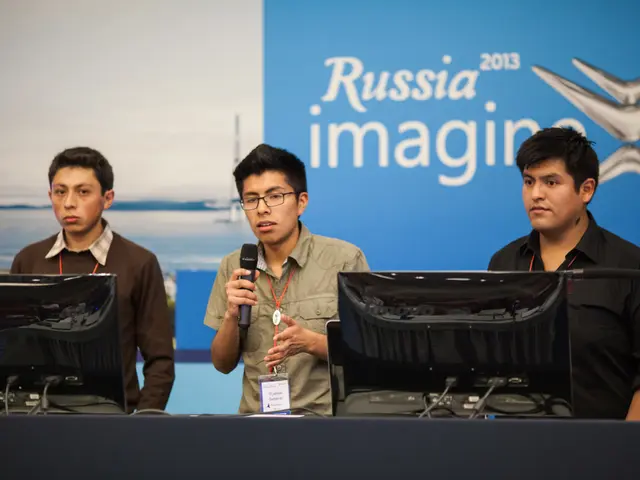Deep-rooted accusations strain ties between Georgia and Ukraine: claims challenge the strength of their friendship
In a development with significant geopolitical implications, an explosives case in Georgia has sparked concerns and accusations between Tbilisi and Kyiv, threatening to deepen the cracks in their once fraternal relations.
The State Security Service of Georgia is currently investigating the case, which involves the interception of 2.4 kilograms of Hexogen hidden in a truck with Ukrainian license plates that crossed into Georgia on 10 September, after passing through Romania and Bulgaria.
Prime Minister Irakli Kobakhidze claimed on Monday that the explosives were brought in on the instructions of Ukrainian special services. However, Kyiv has yet to respond to these accusations.
Ukraine, on the other hand, has accused Georgia of not standing by an ally under fire, suggesting a strain in their relations. The case's outcome could have significant geopolitical consequences.
The explosives were allegedly destined for a residential building in Tbilisi's Avlabari district, an area with political symbolism. The case has been linked by Prime Minister Kobakhidze to earlier remarks by Ukrainian officials who spoke of opening a "second front" in Georgia.
Two Ukrainian citizens have been detained in connection with the case, but the Georgian government has not yet responded to the accusations regarding the explosives found in Tbilisi. Analysts are urging caution against drawing premature conclusions regarding the case.
The situation is taking place in the broader context of Georgia's careful balancing act since Russia's full-scale invasion of Ukraine. If not handled properly, the case could do lasting damage not only between Georgia and Ukraine but across a region already destabilized by Russia's war.
Ukraine has grown increasingly vocal in its frustration, accusing Tbilisi of failing to stand by an ally under fire. However, Georgia has offered humanitarian support but refused to join sanctions or provide military assistance.
The explosives case risks hardening the fault lines between Ukraine and Georgia, a relationship that was once described as fraternal but is now increasingly defined by suspicion. Whether it leads to a diplomatic rift or is defused through transparent investigation will depend on how both governments handle the situation.
The State Security Service of Georgia continues to investigate the case, and it remains to be seen how this incident will shape the future of Georgia-Ukraine relations.
Read also:
- United States tariffs pose a threat to India, necessitating the recruitment of adept negotiators or strategists, similar to those who had influenced Trump's decisions.
- Weekly happenings in the German Federal Parliament (Bundestag)
- Southwest region's most popular posts, accompanied by an inquiry:
- Discussion between Putin and Trump in Alaska could potentially overshadow Ukraine's concerns




